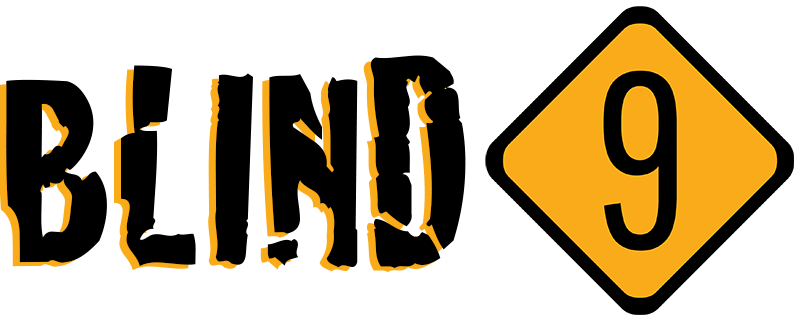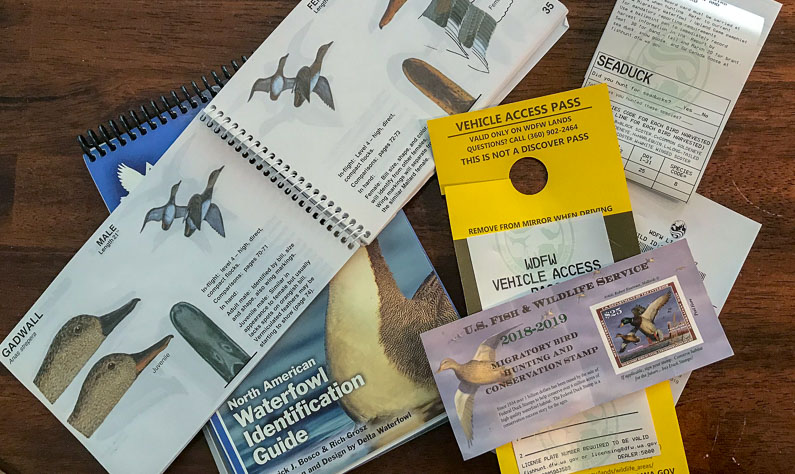When I decided to go duck hunting for the first time, I was surprised at how much preparation was required. I did not have anyone to teach me and instead talked some of my equally inexperienced buddies into joining me. That first season was a blast but it also was bit of a circus for us.
So, I created this quick reference to help you plan for your first hunt. My hope is to prepare you so you can enjoy your hunt and avoid the “gotchas” that can ruin it.
One to Three Months Before the Hunt – Get Your Ducks in a Row
Licenses & Courses
Without a license you won’t hunt so check your state regulations for what you need. In some states you may need to take a hunter safety course, which can take a few days or weeks to complete. In my area, we also have to take a special test just to identify dusky geese, which can be difficult to distinguish from other canada geese but are illegal to shoot in our area. If we don’t pass we can’t legally hunt geese in this area. Finally, you will need a Federal Duck Stamp, which in my state needs to be stamped to the waterfowl license and signed.
Hunting Spots and Times
Where and when are you going to hunt? Your state regulations will provide dates for duck and goose hunting seasons. Some public hunting areas only allow hunting on particular days of the week and not all areas allow hunting during the same days. Do you research on your hunting area and double-check the regulations.
Parking Passes
If you are planning to hunt on public lands you will need a state or federal parking pass, depending on the area. Some areas allow day passes and have check stations where you can buy them the morning of the hunt. Some don’t. Check and plan accordingly.
Scout
Once you have an area picked out, scout it as much as possible. Drive out to it and walk it in the daytime. Believe me, it will look a lot different in the dark morning hours. Choose 2-3 spots you think might make good spots for birds and prepare to come back closer to the season.
Youth Hunt Times and Places
Some states offer youth hunt programs where only kids area allowed to hunt on particular days. These days often are before the general hunting season begins. A youth hunt can be a great opportunity for you to share the sport without the pressure of competing with other hunters.
A Couple of Weeks Before the Hunt
Time Behind the Shotgun
This is a perfect time to get familiar with your primary tool. You can visit your local trap range or sporting clays range to learn the basics of shooting. I’ve always found the trap range shooters to be very eager to help new shooters. Trap ranges use lower-power target shotgun shells, so I also suggest you find public land nearby that allows shooting. Grab a buddy, buy a cheap thrower and some clays and shoot game loads, which are what you will use during the hunt and are more powerful and kick harder than target loads.
Gear up
On Your Body: You’re going to need camouflage waders, jacket, t-shirt, and headwear. I would choose camo that mimics the conditions found around the spot or spots you’ve chosen. Most of the camo designed for waterfowl hunting will probably work for you. Remember that everything gets a lot browner as the season progresses into winter. Depending on the weather in your area you might need other layers and a change of clothes for the drive home.
In Your Pack: You will want to take a backpack or specially designed blind bag. Again, I would go with camo, as birds have great eyesight. Here’s a good list of basics:
- flashlight or headlamp;
- ear protection;
- shotgun shells;
- game strap;
- hand warmers;
- knife or multi-tool;
- gloves;
- snacks;
- water.
If you’re interested in the types of stuff I have, check out what I pack in my blind bag.
Decoys: Unless a friend is taking you, you will need to get some decoys. I would go to your local outfitters, ask the guys working there what would be a good mixed flock of decoys that will mimic the birds in your area and get at least a dozen for starters. Get a variety of birds, not just mallards. Remember the rigging, which will include lines and weights.
A Week Before the Hunt
Scout Your Spots Again
Conditions change, so head out to your spot during the daylight hours and look for places where you can set up. I also like to look for birds during these near-season scouting trips.
Brush up On Waterfowl Identification and Bag Limits
Your state regulations will tell you what you can and can’t shoot and when, but it’s easier said than done. During first light on a cloudy morning all ducks can look the same to an inexperienced hunter. You will make mistakes but you can and should practice identification. I like this book because I can take it with me to the blind.
Night Before the Hunt
Pack up
Get all your gear packed into your truck or car, including water and snacks. Set the coffee pot and the alarm (maybe 2).
Confirm Legal Hunting Time
Refresh yourself on the legal hunting times for your area. This will be published in your annual state hunting regulations. These times change throughout the season, so don’t assume.
What Time Are You Waking Up?
The answer depends on your area. A good rule of thumb is that you should be at the parking area for your chosen spot at least 2 hours before legal hunt time to allow you to hike out, set up, and get settled.
However, the first-come, first-serve areas near me are highly competitive, especially on weekends. Although this is not often allowed in public areas, some people hike out to their favorite spots and sleep in or near the blinds. Others get in line at refuge gates at midnight-2am, waiting for them to be opened by officials. You will have to learn what’s allowed and what really happens in your spots of choice. Might advice is no matter what time you plan to get up, there’s a likelihood someone will already be up and ready before you, which is why you chose 2-3 spots during your scouting.
If you have a lottery spot at a blind, then it’s easier. Simply check with the refuge on when you need to be at the check station.
Morning of The Hunt
Double-check your gear
Before you leave the house, double-check that you have your hunting licenses, driver’s license, some money, parking pass, gun, shells, waders, a jacket, and water. These are what I consider mandatory for a legal, effective, and comfortable hunt. If you’re married, leave a note for your spouse!
Safety and Planning Your Shots
Once you have reached your blind, put out your docoys, and settled in, it’s time to discuss safety and shot selection. Check with your hunting buddies who is going to call the shots, the directions in which each hunter can safely shoot, and who is going to shoot when. We like to pick lanes for each hunter so we avoid discharging a shotgun right in front of another hunter. In a blind this is a common issue. You should also decide the maximum distance in which you can shoot. We usually go for shots within 30 yards.
Etiquette in the Blind
I think it’s most important to stick to your safety plan. After that, all hunters should strive to sit as still as possible. Low volume conversation is OK, but movement will catch birds’ attention the most and cause incoming birds to flare. Look with your eyes, not your head. When you have to move, keep it slow.
Killing Crippled Birds
This is an area where I really struggled because when I started duck hunting I had never hunted before and had nobody to teach me how to quickly kill a crippled bird. It’s likely you will have to do it on every hunt so it’s an important, and humane, skill to learn. You don’t want this bird to suffer needlessly. I grab the injured bird by the head, with its neck between my pointer and middle finger and spin it around until its neck breaks. This will sever the spinal cord and the bird will begin to flap hard for a few seconds then die in a minute or two.
After the Hunt
Clean You Birds
In any successful duck hunt, it doesn’t end well for the birds, so plan to honor their lives by providing for your own. Mallard and goose breasts taste like a very lean sirloin steak when cooked properly, so I would keep those. For any other duck, I take the breast meat I harvest and make summer sausage or pepperoni out of it. I often also take the thighs, legs, livers, and hearts of healthy birds and prepare them according to some recipes I like.
Clean Your Gear
After spending the day in the water and mud you and your gear are going to be pretty dirty. Clean it an stow it, ready to go, for your next hunt. Most importantly, clean your shotgun.


2 Comments. Leave new
It’s good to know that you should pick lanes for each hunter while going for shots with a distance. My brother is wanting to take me duck hunting this weekend and I’m worried that I will not get anything since it’s my first time. I’ll be sure to follow some of these tips and make sure my gun is working properly.
Normally I would mark this as SPAM, especially since it’s not waterfowl season right now and you were probably hired by Dr. Duck to build links. But I applaud that you at least referenced the article on which you commented and didn’t leave a bunch of crap. Link building is an important part of SEO, so kudos for almost hitting the mark. I’d actually be curious about which SEO / marketing company you work for.